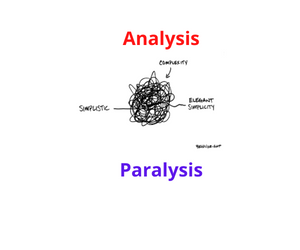With the pint sized French President Sarkozy about to be kicked into the long grass, it seems only reasonable to move from Swiss muppets to a French one, albeit that at least two of the three bad guys in this story live in Switzerland. As many folks are beginning to realise, Swiss bank accounts no longer protect you from the long arm of the taxman back home. Nor will living in Switzerland protect you from the long arm of the financial services regulator, as a fund manager and two former employees of Cantor Fitzgerald found out their cost last week (see the Daily Telegraph).
Fund manager’s will, as a rule, be paid based on the value of the assets under management (AuM). Those who are hedge fund managers, perhaps the 1% of that particular guild, as opposed to the 99%, will often get a performance related fee on top of that. This is the famous “2 & 20” deal; 2% of the value of the assets and 20% of any performance over and above a minimum. Now in many cases, those funds will hold assets where no one person is going to be able to influence the market price substantially, whether by design or accident. In this particular case, the fund manager came up with what he thought was a cunning plan to boost his own modest stipend by deliberately seeking to increase the price of certain stocks in his portfolio with some very targeted buy orders that sought to boost the share price at precisely the moment the fund’s NAV, Net Asset Value, was calculated and with that his fee. So, at month end, the fund manager, a Frenchman by the name of Stefan Chaligne, placed some extraordinary orders with an eye to some extra fees. In order to move the market, the orders had to be, and were, quite large. The AuM or NAV went up by 3% on one day. Possibly larger than normal in the particular stocks or by the fund, because, quelle surprise, somebody noticed something suspicious. The FSA are now imposing hefty fines, of some 2 million quid, on the three guys involved and banning them from the securities industry. The errant Frenchman quite clearly had no sense of normal; spiking the volume at month end and causing a significant price jump. Clearly he should have read some earlier postings in this Blog about what is normal. Mais non and now he will be much lighter of pocket.
The case highlights both the naiveté, or if one is unkind, the stupidity of those involved. Even when you are not breaking rules, it is easy to get caught. It is quite normal to settle Eurobonds either in the domestic market or in Euroclear. It is also quite normal to have to pay your custodian both for each transaction and a service fee based on the assets under custody or administration. If you have big positions, you will get a big bill. Back in the late ’80’s, Salomon Brothers, or Solly, was the king of the hill in bond trading. Run by John Gutfreund, made famous, or infamous, in the book Liar’s Poker by Michael Lewis. The particular corner of the bond market that I dealt with in my graduate days, was France. OAT’s and BTAN’s were the staple daily diet. So long was this, that many of the bonds we settled in those early days, have since matured. Back in the day though, Solly was the home at least in spirit, of the Masters of the Universe. French government bond trading was in the hands of a Frenchman, Frederic de Guisto and his Canadian, wannabe French, sidekick, Doug Hodge. The two of them bought-up French government bonds; as fast and in such quantity as Charlie Sheen sampling the goods in a cocaine laboratory. Big positions, big bills for those custody fees at month end. “At month end”; the clue is in the name. We knew we got big bills and in some moment of insanely clear insight, we had an idea on how to save those fees. Because the bonds could settle in one of two place, either in the French SICOVAM system or in Euroclear, there was a method of moving bonds from one place to the other. This was referred to as “putting bonds in transit”. As it happened, JP Morgan were the agent for Euroclear, as well as being Solly’s French custodian at the time. Seeing month end coming, we realised that if we put these bonds into transit, with the perceived aim of moving them from A to B, the bonds were neither in Solly’s acocunt at JP Morgan in Paris, nor were they in the Solly account at Euroclear. Neither here nor there proverbially. This was a great game and over the the first few months we saved some $250k in fees. Then somebody noticed and decided to switch to billing on the average balance over the month, not just one day. Game over for that little wheeze, but it was fun while it lasted and in the spirit of the times, it was fun taking the money out of JP Morgan’s pocket.
Lessons Learned: Don’t cheat. You will get caught. And if you do it one month, chances are you will keep having to do it. When things are not normal eventually that will lead to discovery. If you are collecting fees based on asset values, avoid charging on a single day. Look at more observations.
Epilogue: Lastly, don’t think your ill gotten gains will be safe in Switzerland or that you will be. As the legendary Billy Joel sang in the song “Getting Closer”: “To all the banks in Switzerland that hide my stolen loot youth, it’s alright because despite the lies you cannot hide the truth”
Share on:



